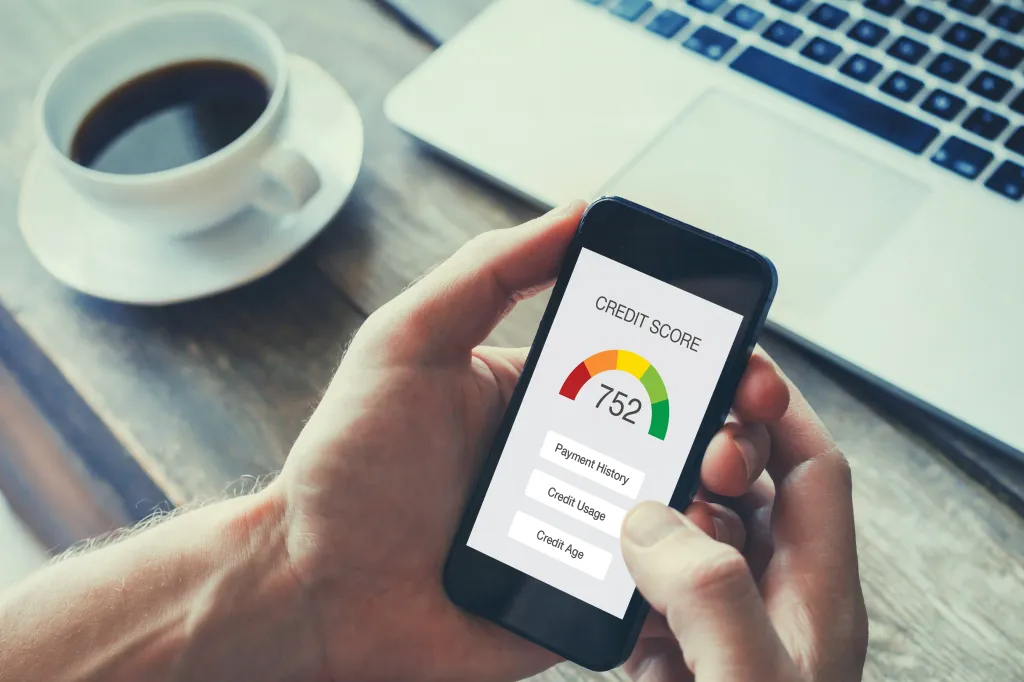Published October 4, 2021 • 6 Min Read
TLDR
-
Checking your own score doesn’t affect it. Do check it regularly to keep tabs on where your credit stands.
-
Don’t close old credit cards; doing so can lower your score by increasing credit utilization (a calculation that measures how much of your credit you’re tapping into).
-
Your income doesn’t affect your credit score. Lenders may use it, but it isn’t factored into your score.
-
You don’t need to carry a balance to build credit. Pay off your cards to avoid interest and maintain a good utilization rate.
-
Your credit score may vary between the two major credit reporting agencies.
Everyone has heard about credit scores, but how many people really know about the impact they can have on their lives? The answer is likely not many. From how they are calculated to what does and doesn’t impact these numbers, there are many misconceptions about how credit scores work in Canada. But whether you’re buying a new home, applying for a loan or renting an apartment, this three-digit figure can play a big role in your financial life. Let’s debunk five of the most common credit score myths so you can improve your financial health.
What is a credit score?
When you borrow money, whether for a car loan, a mortgage, a credit card or a line of credit, your lender wants to know how reliable you’ll be at paying it back. They make that determination by looking at your credit score: a number between 300 and 900, which takes several things into account, such as how much debt you have outstanding, the types of credit you’ve applied for over your lifetime, like a car loan or line of credit, the number of credit applications you’ve made and more.
While credit-scoring models vary, scores between 660 and 724 are generally considered good, 725 to 759 are considered very good and 760 to 900 are considered excellent. The score isn’t a fixed number, it changes based on your borrowing and repayment activity. Lenders also set their own rules for how they interpret your credit score.
Those with good scores can often borrow money at better interest rates than those with poorer credit. They also tend to get accepted for more loans and can borrow more money. Credit scores can even influence whether a landlord will let you rent their property.
Myth #1: Checking your own credit score can lower it
This is a common concern, but it isn’t true. Checking your credit score yourself, such as through a credit rating agency, is called a “soft” inquiry. It gets recorded on your credit report, but only you see it.
There’s no need to worry about looking into your credit score. In fact, it’s a good idea to check it from time to time to see where your credit stands.
The checks that do affect your score are called “hard” inquiries and include credit card applications, mortgage applications, and some rental applications. These inquiries, which may stay on your credit report for up to 36 months, tell a lender that you’ve been looking for credit. Depending on your history, the number of hard inquiries made on your report could influence how reliable a lender determines you to be.
There’s an exception for rate shopping, however. If you’re looking for certain types of loans, like a mortgage, multiple inquiries over a short period (generally between 14-45 days) are usually considered as a single hard inquiry.
Checking your credit score can help you understand what information is reported and help you prepare to shop for a loan.
Myth #2: Closing old credit cards improves your score
It may seem counterintuitive, but reducing the amount of potential debt you have access to may actually lower your credit score.
That’s because your credit score is based in part on what’s called “credit utilization,” which measures how much of your available debt you’re tapping into.
For example, say you have two credit cards with limits of $10,000 each. You have $10,000 on one card and no balance on the other. In this case, your credit utilization ratio is 50%, or $10,000 divided by $20,000. If you decide to cancel the card with no balance, your credit utilization is now 100%
This high credit utilization ratio could signal to the credit reporting agencies that you’re struggling to manage your payments. Keep your credit accounts open and use them occasionally so they stay active.
Myth #3: Your income impacts your credit score
The more money you have, the better you can pay off your debts, right? While lenders will often use your earnings to determine how much you can borrow, your credit score does not take salary information into account.
On the flip side, having a lower income doesn’t affect your score either. People across all income levels are good and bad at paying off loans and managing credit, and that’s what matters more.
Myth #4: You need to carry a balance on your credit card to build credit
Using your credit card regularly can improve your credit score, but carrying a balance doesn’t. That’s partly because of that credit utilization rate – if you don’t pay down your debt, the interest on those funds can grow rapidly, adding more to pay back. If you let that balance build, you might increase your utilization ratio. If you can’t pay off your bill every month, at least try to keep the balance at or below 30% of your available limit.
Myth #5: All credit scores are the same across rating agencies
This one takes some explaining, so let’s break it down:
-
Scores vary between agencies
There are two national credit reporting agencies in Canada, Equifax and TransUnion, but ratings scores between the two can be different. There are a few reasons why this may be the case, including different scoring models for each agency, lenders not reporting to both agencies and the timing of creditor inquiries. Different lenders may ask for different versions of your score, which can lead to further variations.
-
It’s important to check your score with both agencies
Because your score may vary between agencies, you should keep track of both. Not only will this give you a clear picture of where you stand with your credit, but it can also help you spot signs of identity theft.
Understanding how credit scores work is key to managing your finances and qualifying for better credit terms. Wondering about your rating? You can make a soft inquiry to access your credit score with RBC Online Banking. A Convenient & Secure Way to See Where Your Credit Stands – RBC Royal Bank. And remember, checking your rating regularly can help you make stronger financial decisions.
This article is intended as general information only and is not to be relied upon as constituting legal, financial or other professional advice. A professional advisor should be consulted regarding your specific situation. Information presented is believed to be factual and up-to-date but we do not guarantee its accuracy and it should not be regarded as a complete analysis of the subjects discussed. All expressions of opinion reflect the judgment of the authors as of the date of publication and are subject to change. No endorsement of any third parties or their advice, opinions, information, products or services is expressly given or implied by Royal Bank of Canada or any of its affiliates.
Share This Article






